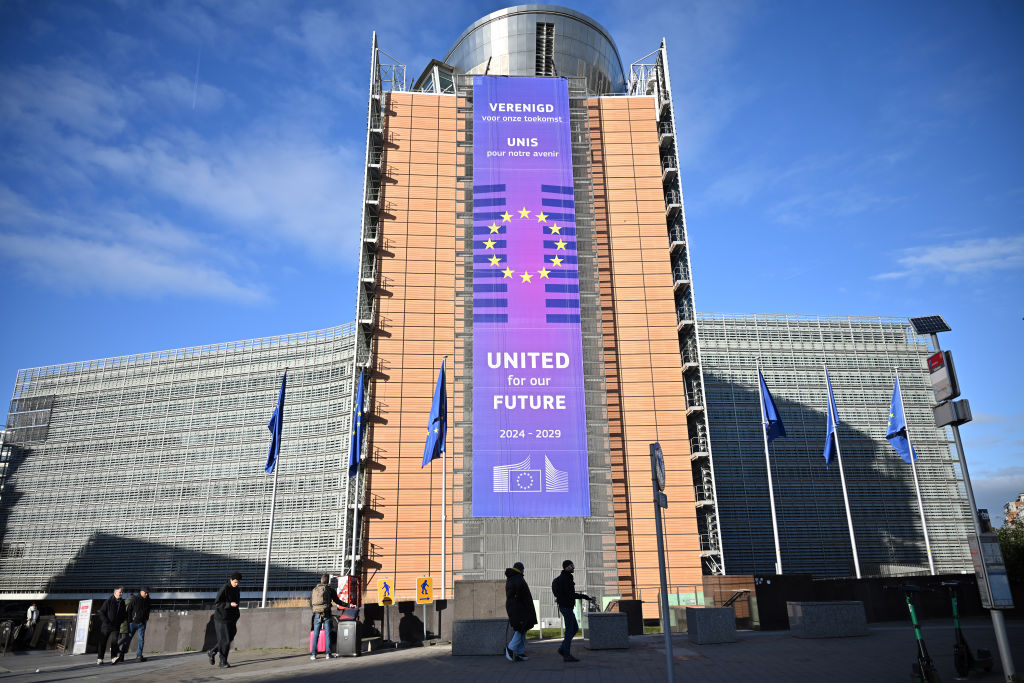Sophie in ‘t Veld was a Dutch MEP from 2004-2024 in the Renew Group. She chaired the European Parliament’s Rule of Law Monitoring Group (ROLMG) from 2018.
Europe is in a fight – a fight for our very future. A new world order is rapidly taking shape, based on raw power rather than rules. Now must be Europe’s independence moment.
The opening remarks of Commission President Von der Leyen in last week’s State of the European Union address conveyed high urgency. And after such an alarming introduction, one would expect Europe’s top political leader to paint a bold vision for a revived, powerful Europe; a plan to make Europe the world’s strongest, most innovative economy and the global leader in well-being, freedom, and equality. A truly independent Europe that is a rule-maker, not a rule-taker on climate, the digital sphere, trade, and human rights.
This year’s SOTEU was the perfect opportunity to restore confidence, offer hope and make us proud to be European.
Alas, rather than launching the long-overdue, radical transformation of the EU, the rest of von der Leyen’s speech essentially offered the status quo with a lick of fresh paint. No political vision, just a shopping list of policies. “There is no room for nostalgia,” we were told. Yet her speech was the echo of the old Europe.
Several proposals in the SOTEU aren’t new but have for decades been held up by national blockades. Not for lack of solutions have we have seen two decades of stagnation in the internal market, but rather for lack of political will. It remains to be seen if the announced Single Market Road Map to 2028 or the Grid Package will fix that. There seems to be no ambition for real reforms to eliminate the remaining national barriers within the internal market. On the contrary, the Commission tolerates national governments tightening their grip on certain sectors – such as banking.
But neither throwing money at problems nor undoing climate, social or digital regulation will make Europe an economic powerhouse.
Von der Leyen’s social housing initiative is commendable, but its fate is sadly predictable and depends entirely on the political will of the national governments. As she said herself, the European Pillar of Social Rights was adopted eight years ago, and has since been largely ignored by national governments. Meanwhile on migration, SOTEU catered to the far-right but remained silent on much-needed proposals on legal labour migration. And whereas the tectonic shifts in the world order make enlargement a priority for Europe, Von der Leyen hardly mentioned it. What she did say was just “business as usual”.
Even her section on defence was underwhelming – the war in Ukraine has definitely triggered substantial European activity on this front, but it is mainly non-EU, intergovernmental coalitions of the willing. Of course the Commission has limited powers in the area, but that should not prevent it from putting forward visionary proposals to realise a truly integrated European Defence Union.
All things considered, a new, independent Europe still seems far off, with no ideas on how to transform the EU’s governance.
But why? It’s not that Von der Leyen herself lacks ambition or determination. The explanation lies in the 27 national capitals.
Whilst the Commission President made an urgent appeal to the “pro-European majority” in the European Parliament, there is no such majority in the European Council. Governments may pay lip service to a strong Europe but they have absolutely no appetite for a stronger EU. Their reluctance to cede powers to a strong supranational EU is greater than their concern about the threats to Europe.
National leaders like to keep the EU small, so they can feel big. But while they rail against an imaginary Brussels Super State, they are effectively handing power to Trump, Putin and Xi.
The European Commission has forgotten the Treaty requirement of independence vis-à-vis the national governments, and it has ceased to be the custodian of the Treaties and the driving force behind European integration.
As Draghi put it: Europe needs radical reforms, or face slow agony. With courage, imagination and unity, Europe can be the most powerful continent in the world, with the highest quality of life. But this year’s SOTEU is not the key to unlocking that potential.
